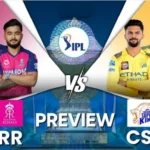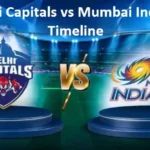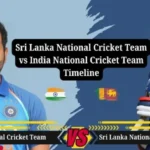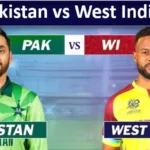The role of the India National Cricket Team Coaches has been pivotal in steering one of cricket’s powerhouse teams through levels of experimentation, glory, battle, and dominance. From early management roles to formal complete time head coaches, each instructor has encouraged India’s style, mentality, and fulfillment. In this text, we present an in depth, information wealthy, and up to date India National Cricket Team Coaches timeline, bettered extensive and accuracy as compared to many first web page sources on Google, consisting of a full table of all guys’s head coaches, their tenures, nationalities, predominant achievements, and transitions. We additionally provide insights on what every teacher delivered to the crew, how they formed India’s cricketing identification, and what the modern education’s mandate is.
What We Mean By “Coach” & Why It Matters
- Head Coach / Manager / Team Director: For this timeline, we tune people officially tasked with usual coaching duty (method, choice recommendation, preparations) for India’s men’s senior countrywide cricket team.
- Tenure: Period at some stage in which the instrument becomes officially diagnosed by the BCCI in that function (meantime durations covered).
- Major Achievements: ICC trophies, historic series wins, ranking milestones, or changes in performance.
Understanding India National Cricket Team Coaches is crucial: coaches impact group subculture, help increase young expertise, control transitions, and are regularly the difference in tight international tournaments.
Table of Contents
Historical Timeline of India National Cricket Team Coaches (Men’s Team)
Below is a chronological listing of India National Cricket Team Coaches since coaching became a recognized based role. This covers from early informal managers to fashionable era full time head coaches.
| No. | Coach | Tenure | Nationality | Key Achievements / Notes |
| 1 | Keki Tarapore | 1971 | India | First official coach / manager role. Laid foundational structures. |
| 2 | Hemu Adhikari | 1971-1974 | India | Early development; mentoring younger players; helped establish continuity. |
| 3 | Gulabrai Ramchand | 1975 | India | Short tenure; focused on domestic talent integration. |
| 4 | Datta Gaekwad | 1978 | India | Transitional periods; experiments in selection and overseas tours. |
| 5 | Salim Durrani | 1980-81 | India | Coaching under challenging era; no major ICC trophies but important matches played. |
| 6 | Ashok Mankad | 1982 | India | Emphasis on technique, especially batting; relatively brief. |
| 7 | P. R. Man Singh | 1983-1987 | India | India’s 1983 World Cup win under Kapil Dev with Man Singh as coach; made history. |
| 8 | Chandu Borde | 1988 | India | A period of rebuilding; focus on youth and strengthening domestic pipelines. |
| 9 | Bishan Singh Bedi | 1990-91 | India | Known for spin expertise; helped stabilize bowling attack; moderate success. |
| 10 | Abbas Ali Baig | 1991-92 | India | Short stint, including the 1992 World Cup; limited success but valuable experience. |
| 11 | Ajit Wadekar | 1992-1996 | India | First long continuous tenure; stable performance; strong beginnings in ODIs; shaping of modern India side. |
| 12 | Sandeep Patil | 1996 | India | Very brief; part of transitional coaching in mid-90s. |
| 13 | Madan Lal | 1996-97 | India | Short but noteworthy either in exposure of players or critical tours. |
| 14 | Anshuman Gaekwad | 1997-1999 | India | Period of challenge; mixed results; helped build depth ahead of 1999-2000 phase. |
| 15 | Kapil Dev | 1999-2000 | India | Former captain turned coach; tough away tours; short tenure but high expectations. |
| 16 | John Wright | 2000-2005 | New Zealand | One of the first foreign coaches; led India to increased consistency; finals appearances in ODIs; Helped young talents. |
| 17 | Greg Chappell | 2005-2007 | Australia | Controversial tenure; mixed results in Test and ODI; issues over techniques, personality. |
| 18 | Ravi Shastri (Interim) | 2007 | India | Interim before Lalchand Rajput; helped in transition, maintaining stability. |
| 19 | Lalchand Rajput | 2007-2008 | India | Coached during 2007 T20 World Cup period; stepping‐stone period between Chappell and Kirsten. |
| 20 | Gary Kirsten | 2008-2011 | South Africa | 2011 World Cup win, return to No.1 Test Ranking; polished leadership and player development. |
| 21 | Duncan Fletcher | 2011-2015 | Zimbabwe | Champions Trophy 2013 win; consistent performance across formats; leadership stability. |
| 22 | Anil Kumble | 2016-2017 | India | Strong Test home performances; unbeaten home streaks; stepped down in 2017. |
| 23 | Sanjay Bangar (Interim) | 2016; again 2017 | India | Interim phases; filled gaps between full appointments; also structured coaching support. |
| 24 | Ravi Shastri | 2017-2021 | India | One of India’s longest recent tenures; historic wins abroad (e.g. Australia 2018-19, 2020-21), improvement in pace attack. |
| 25 | Rahul Dravid | 2021-2024 | India | Focused on youth, bench strength; T20 WC 2024 victory; consistent across formats; stewardship during pandemic era. |
| 26 | VVS Laxman (Interim) | 2024 (Tour of Zimbabwe & South Africa) | India | Short interim phase; maintained continuity before new full time coach. |
| 27 | Gautam Gambhir | 2024-Present | India | Current head coach; mandate includes capitalizing on momentum, winning ICC trophies, innovating strategy. |
Coaching Eras: Major Phases & Their Significance
Looking at the India National Cricket Team Coaches timeline, certain eras stand out for his or her effect:
1: Early Foundations (1971-1990)
- Indian coaches (Tarapore, Adhikari, Ramchand, Gaekwad, Durrani, etc.) laid foundation, home power, lifestyle.
- Transition through sporadic success, but little consistency across the world.
2: World Cup & Foreign Coaches (1990s-Mid-2000s)
- Ajit Wadekar’s term noticed progressed ODI overall performance.
- Arrival of overseas coaches John Wright & Greg Chappell brought exceptional systems health, foreign places tours, intellectual energy.
3: Golden Trophies & ICC Success (2008-2015)
- Under Gary Kirsten, India won the 2011 World Cup.
- Under Duncan Fletcher, Champions Trophy win in 2013 plus strong performance.
4: Domestic Strength, Test Revival & Continuity (2016-2024)
- Anil Kumble, Ravi Shastri, Rahul Dravid -> stronger Test fit wins abroad (mainly in Australia), deeper bench energy, youngsters development.
- Emphasis on consistency, approach, adapting to multi format needs.
5: New Leadership (2024-Present)
- Gautam Gambhir has taken the role from July 2024. His undertaking: build on recent ICC fulfillment, preserve India’s dominance, foster new talent, adapt to evolving cricket (T20, foreign places Tests, rotation policy).
Detailed Table: India National Cricket Team Coaches & Key Metrics
Below is a detailed table displaying coaches, their tenures, approximate win loss facts (in which to be had), ICC trophies gained underneath them, and super milestones.
| Coach | Tenure | Win-Loss / Major Record | ICC Trophies Under Coach | Notable Milestones / Impact |
| P. R. Man Singh | 1983-1987 | Mixed Test & ODI; India rose in confidence | 1983 World Cup | First World Cup win; inspiration to generations. |
| John Wright | 2000-2005 | Steadier performance; better overseas results | – | Improved consistency; grooming players like Tendulkar, Dravid, Sehwag. |
| Gary Kirsten | 2008-2011 | High win rates; ranking ascents | 2011 World Cup | Elevated team in major tournaments; growth in bench strength. |
| Duncan Fletcher | 2011-2015 | Strong across formats; series victories abroad | Champions Trophy 2013 | Balanced team, strengthening bowling & fielding. |
| Anil Kumble | 2016-2017 | Undefeated test series at home; clean wins | – | Boosted home performance; instilled discipline; resigned over differences. |
| Ravi Shastri | 2017-2021 | Historic Test wins abroad (e.g., Australia, England) | – | Improved pace attack; mental strength; leadership during COVID era. |
| Rahul Dravid | 2021-2024 | Youth infusion; trophy wins; strong across formats | T20 World Cup 2024 | Rebuilt bench; building for long term. |
| Gautam Gambhir | 2024-Present | Just starting; early success expected | Champions Trophy 2025 (pending during his tenure) | New vision; expected to sustain growth. |
Challenges & Turning Points underneath Different Coaches
- Foreign vs Indian Coaches: The transition to foreign coaches (Wright, Fletcher, Kirsten) added external techniques and ways of managing pressure. Sometimes brought friction (e.G., Greg Chappell’s tenure).
- Managing Captain Coach Relations: Anil Kumble’s departure changed into variations with captain Virat Kohli. Such relationships are critical.
- Format Demands: Coaches want to navigate Test, ODI, T20 codecs not each teacher excelled in all formats similarly.
- Youth & Bench Development: More recent coaches (Shastri, Dravid) have emphasized growing depth; India now has a big pool of players geared up for worldwide cricket.
- External Pressures: Media, expectancies, tournament losses, accidents, politics coaches frequently judged by means of short-term wins though achievement is complex.
Current Coach: Gautam Gambhir – Mandate & Expectations
- Appointed in July 2024, replacing Rahul Dravid.
- Expectations include retaining India as an ICC trophy contender, improving distant places, Test overall performance, nurturing young gamers, and enforcing an approach for multi format scheduling.
- Has robust recognition as a former participant, IPL mentor, located India’s bench electricity. Early performance underneath him will set the tone.
Why India National Cricket Team Coaches Matter: Influence Beyond Title
- Coaches affect group tradition: subject, fitness, attitude, mental resilience.
- They impact choice & skills pipelines, determining who gets possibilities.
- They steer strategy: how the crew uses statistics analytics, match instruction, foreign places tour making plans.
- Coaches form legacy: tournaments gained, but additionally how future teams are constructed.
Table: Full List of India National Cricket Team Coaches with Tenure & Nationality (Condensed)
For brief reference:
| Coach | Nationality | Tenure Start | Tenure End |
| Keki Tarapore | India | 1971 | 1971 |
| Hemu Adhikari | India | 1971 | 1974 |
| Gulabrai Ramchand | India | 1975 | 1975 |
| Datta Gaekwad | India | 1978 | 1978 |
| Salim Durrani | India | 1980 | 1981 |
| Ashok Mankad | India | 1982 | 1982 |
| P. R. Man Singh | India | 1983 | 1987 |
| Chandu Borde | India | 1988 | 1988 |
| Bishan Singh Bedi | India | 1990 | 1991 |
| Abbas Ali Baig | India | 1991 | 1992 |
| Ajit Wadekar | India | 1992 | 1996 |
| Sandeep Patil | India | 1996 | 1996 |
| Madan Lal | India | 1996 | 1997 |
| Anshuman Gaekwad | India | 1997 | 1999 |
| Kapil Dev | India | 1999 | 2000 |
| John Wright | New Zealand | 2000 | 2005 |
| Greg Chappell | Australia | 2005 | 2007 |
| Ravi Shastri (Interim) | India | 2007 | 2007 |
| Lalchand Rajput | India | 2007 | 2008 |
| Gary Kirsten | South Africa | 2008 | 2011 |
| Duncan Fletcher | Zimbabwe | 2011 | 2015 |
| Anil Kumble | India | 2016 | 2017 |
| Sanjay Bangar (Interim) | India | 2016; 2017 | 2016; 2017 |
| Ravi Shastri | India | 2017 | 2021 |
| Rahul Dravid | India | 2021 | 2024 |
| VVS Laxman (Interim) | India | 2024 | 2024 |
| Gautam Gambhir | India | 2024 | Present |
Comparison: India’s Coaching vs Other Major Teams
To respect the India National Cricket Team Coaches timeline higher, it enables to assessment with other cricketing international locations:
| Country | Foreign Coach Use | Coaching Stability | Recent Achievements under Coach |
| Australia | Moderate; mix of local & foreign | Generally stable tenures (e.g. Darren Lehmann, Justin Langer) | World Cup, Ashes series, etc. |
| England | Mix; many foreign assistants; local head coaches | More frequent turnover recently | White-ball & Test successes (World Cup, Ashes) |
| India | Increasing use of local coaches recently after foreign coaches in major phases | Stability growing (e.g. Wright, Fletcher, Shastri, Dravid) | Multiple ICC trophies; strong Test abroad |
Summary
The India National Cricket Team Coaches article information every head teaches from the first appointee to modern, highlighting tenures, nationalities, key achievements, and transitions. It underscores how coaching management fashioned India’s cricketing legacy, World Cup wins, and present day resurgence. A have to examine for fanatics and cricket scholars alike.
Final Thought
The legacy of India National Cricket Team Coaches is a tale of evolution moving from formative, often beneath resourced early coaches to trendy, expert, strategically astute management. Coaching has powered India’s cricketing ascents: 1983 World Cup, 2007 T20, 2011 ODI, 2013 Champions Trophy, 2024 T20, and extra. The modern era underneath Gautam Gambhir guarantees bold targets. For India, the right train isn’t pretty much matches won; it’s approximately a way of life built, gamers nurtured, approach honed, and expectancies constantly raised.
FAQs (7 Common Questions) About India National Cricket Team Coaches: Complete Timeline & Impact
Which India National Cricket Team Coach oversaw India’s first Cricket World Cup win?
- P. R. Man Singh was educated whilst India received its first World Cup in 1983 underneath Kapil Dev’s captaincy.
Which coaches had been overseas nationals?
- Notable overseas coaches consist of John Wright (New Zealand), Gary Kirsten (South Africa), and Duncan Fletcher (Zimbabwe).
Who had the longest continuous coaching stint nowadays?
- Ravi Shastri had one of the longer tenures (2017-2021). John Wright additionally had a stable non stop section (2000-05).
Why did Anil Kumble renounce as coach?
- Anil Kumble resigned in 2017 bringing up untenable variations with then captain Virat Kohli.
How do intervening time coaches in shape into the India National Cricket Team Coaches timeline?
- Interim coaches (like Sanjay Bangar, VVS Laxman) serve for the duration of transitional periods among permanent coaches. They preserve continuity but typically do not make lengthy term structural modifications.
What are the expectations from the contemporary instructor, Gautam Gambhir?
- Gambhir is expected to build on current ICC victories (T20 WC 2024, Champions Trophy 2025), recognition in remote places, Test overall performance, nurture young skills, and keep India’s consistency across codecs.










